(In leiu of making note of being the very definition of resilience)
LEGACY OF THE DIVINE TAROT - CIRO MARCHETTI
The ACE OF SWORDS is a symbol of Fortitude
overcoming adversity
facing problems
resolving situations
finding the strength to overcome
surmounting obstacles
being undaunted by setbacks
This word I want to speak to my enemies:
What is the murder of all human beings, compared to that which you have done to me? What you have done to me is more evil than any genocidal tendency; you have taken from me the irretrievable. For you murdered the visions and dearest wonder of my youth. My playmates you took from me, the blessed spirits. In their memory I lay down this wreath and this curse. This curse against you, my enemies! For you have cut short my eternal bliss, as a tone that breaks off in a cold night. Scarcely as the gleam of diving eyes it came to me -- passing swiftly as a glance. Thus I speak to you, my enemies.
My purity spoke one beautiful moment: “All beings shall be divine to me.” then you assaulted me with filthy ghosts; alas, where has this beautiful moment fled to?
“All days shall be holy to me” -- thus said the wisdom of my youth once; verily, it was the saying of a happy wisdom. But then you, my enemies, stole my nights from me and sold then into sleepless agony; alas, where has this happy wisdom fled now?
Once I craved happy omens from the birds; then you led a monster of a vulture across my way, a revolting one. Alas, where did my tender desire flee then?
All impairment I once vowed to renounce: then you changed those near and nearest to me into open sores. Alas, where did my noblest vow flee then?
I once walked as a blind man, along blessed paths; then you threw filth in the path of the blind man, and now his old footpaths nauseate him.
Verily, this was always your practice: you galled my best honey and the industry of my best bees. To my charity you always dispatched the most impudent beggars; around my pity you always pushed the incurably shameless. Thus you wounded my virtue in its faith. And whenever I laid down for a sacrifice even what was holiest to me, your “piety” immediately placed its fatter gifts alongside, and in the fumes of your fat what was holiest to me suffocated.
And once I wanted to dance as I had never danced before: over all the heavens I wanted to dance, then you persuaded my dearest singer. And she struck up a horrible dismal tune; alas, she farted in my ears like a gloomy horn. Murderous dinger, tool of malice, most innocent yourself! I stood ready for the best dance, when you murdered my ecstasy with your sounds, only in dance do I know how to tell the parable of the highest things” and now my highest parable remained unspoken in my limbs. My highest hope remained unspoken and unredeemed. And all the visions and consolations of my youth died! How did I endure it? How did I get over and overcome such wounds? How did my soul rise again out of such tombs?
Indeed, in me there is something invulnerable and unburiable, something that explodes rocks: that is MY WILL, silent and unchanged it strides through the years. It would walk its way on my feet, my longstanding will, its mind is hard of heart and invulnerable.
Invulnerable I am, only in the heel. You are still alive and still your old self, most patient one. You have broken out of every tomb. What in my youth was unredeemed lives on in you; life and youth in you sit there, full of hope, on grey ruins of tombs.
Indeed, for me, you are still the shatterer of all tombs. Hail to thee,
“All days shall be holy to me” -- thus said the wisdom of my youth once; verily, it was the saying of a happy wisdom. But then you, my enemies, stole my nights from me and sold then into sleepless agony; alas, where has this happy wisdom fled now?
Once I craved happy omens from the birds; then you led a monster of a vulture across my way, a revolting one. Alas, where did my tender desire flee then?
All impairment I once vowed to renounce: then you changed those near and nearest to me into open sores. Alas, where did my noblest vow flee then?
I once walked as a blind man, along blessed paths; then you threw filth in the path of the blind man, and now his old footpaths nauseate him.
And when I did what was hardest for me and celebrated the triumph of my overcomings, then you made those who loved me scream that I was hurting them most.
Verily, this was always your practice: you galled my best honey and the industry of my best bees. To my charity you always dispatched the most impudent beggars; around my pity you always pushed the incurably shameless. Thus you wounded my virtue in its faith. And whenever I laid down for a sacrifice even what was holiest to me, your “piety” immediately placed its fatter gifts alongside, and in the fumes of your fat what was holiest to me suffocated.
And once I wanted to dance as I had never danced before: over all the heavens I wanted to dance, then you persuaded my dearest singer. And she struck up a horrible dismal tune; alas, she farted in my ears like a gloomy horn. Murderous dinger, tool of malice, most innocent yourself! I stood ready for the best dance, when you murdered my ecstasy with your sounds, only in dance do I know how to tell the parable of the highest things” and now my highest parable remained unspoken in my limbs. My highest hope remained unspoken and unredeemed. And all the visions and consolations of my youth died! How did I endure it? How did I get over and overcome such wounds? How did my soul rise again out of such tombs?
Indeed, in me there is something invulnerable and unburiable, something that explodes rocks: that is MY WILL, silent and unchanged it strides through the years. It would walk its way on my feet, my longstanding will, its mind is hard of heart and invulnerable.
Invulnerable I am, only in the heel. You are still alive and still your old self, most patient one. You have broken out of every tomb. What in my youth was unredeemed lives on in you; life and youth in you sit there, full of hope, on grey ruins of tombs.
Indeed, for me, you are still the shatterer of all tombs. Hail to thee,
my will!
And only where there are tombs are there resurrections.
Thus sings Zarathustra.
THUS SPOKE ZARATHUSTRA: SECOND PART [THE TOMB SONG]
Edited & Published by Hero Mechalith, 2010
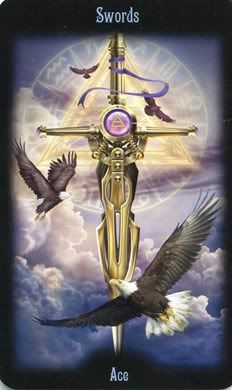
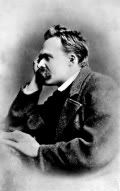





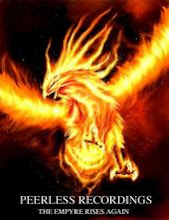





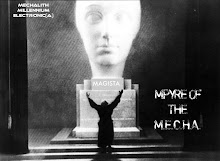
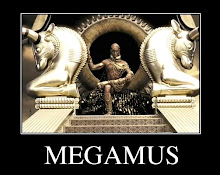





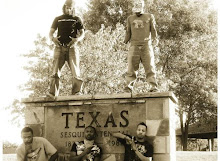


No comments:
Post a Comment